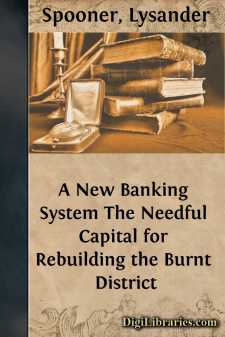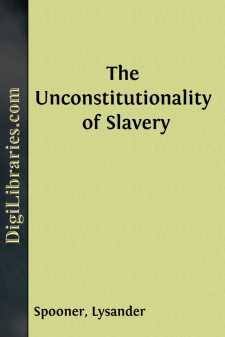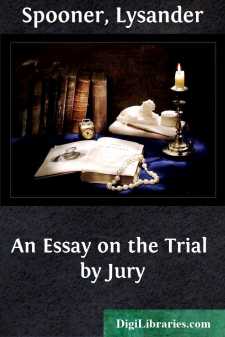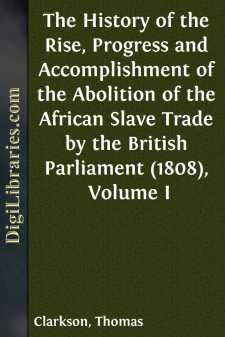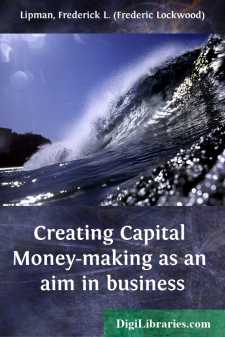Categories
- Antiques & Collectibles 13
- Architecture 36
- Art 48
- Bibles 22
- Biography & Autobiography 813
- Body, Mind & Spirit 142
- Business & Economics 28
- Children's Books 17
- Children's Fiction 14
- Computers 4
- Cooking 94
- Crafts & Hobbies 4
- Drama 346
- Education 46
- Family & Relationships 57
- Fiction 11829
- Games 19
- Gardening 17
- Health & Fitness 34
- History 1377
- House & Home 1
- Humor 147
- Juvenile Fiction 1873
- Juvenile Nonfiction 202
- Language Arts & Disciplines 88
- Law 16
- Literary Collections 686
- Literary Criticism 179
- Mathematics 13
- Medical 41
- Music 40
- Nature 179
- Non-Classifiable 1768
- Performing Arts 7
- Periodicals 1453
- Philosophy 64
- Photography 2
- Poetry 896
- Political Science 203
- Psychology 42
- Reference 154
- Religion 513
- Science 126
- Self-Help 84
- Social Science 81
- Sports & Recreation 34
- Study Aids 3
- Technology & Engineering 59
- Transportation 23
- Travel 463
- True Crime 29
A New Banking System The Needful Capital for Rebuilding the Burnt District
by: Lysander Spooner
Description:
Excerpt
CHAPTER I.
A NEW BANKING SYSTEM.
Under the banking system—an outline of which is hereafter given—the real estate of Boston alone—taken at only three-fourths its value, as estimated by the State valuation—is capable of furnishing three hundred millions of dollars of loanable capital.
Under the same system, the real estate of Massachusetts—taken at only three-fourths its estimated value—is capable of furnishing seven hundred and fifty millions of loanable capital.
The real estate of the Commonwealth, therefore, is capable of furnishing an amount of loanable capital more than twelve times as great as that of all the "National" Banks in the State; more than twice as great as that of all the "National" banks of the whole United States ($353,917,470); and equal to the entire amount ($750,000,000, or thereabouts) both of greenback and "National" bank currency of the United States.
It is capable of furnishing loanable capital equal to one thousand dollars for every male and female person, of sixteen years of age and upwards, within the Commonwealth; or two thousand five hundred dollars for every male adult.
It would scarcely be extravagant to say that it is capable of furnishing ample capital for every deserving enterprise, and every deserving man and woman, within the State; and also for all such other enterprises in other parts of the United States, and in foreign commerce, as Massachusetts men might desire to engage in.
Unless the same system, or some equivalent one, should be adopted in other States, the capital thus furnished in this State, could be loaned at high interest at the West and the South.
If adopted here earlier than in other States, it would enable the citizens of this State to act as pioneers in the most lucrative enterprises that are to be found in other parts of the country.
All this capital is now lying dead, so far as being loaned is concerned.
All this capital can be loaned in the form of currency, if so much can be used.
All the profits of banking, under this system, would be clear profits, inasmuch as the use of the real estate as banking capital, would not interfere at all with its use for other purposes.
The use of this real estate as banking capital would break up all monopolies in banking, and in all other business depending upon bank loans. It would diffuse credit much more widely than it has ever been diffused. It would reduce interest to the lowest rates to which free competition could reduce it. It would give immense activity and power to industrial and commercial enterprise. It would multiply machinery, and do far more to increase production than any other system of credit and currency that has ever been invented. And being furnished at low rates of interest, would secure to producers a much larger share of the proceeds of their labor, than they now receive.
All this capital can be brought into use as fast as the titles to real estate can be ascertained, and the necessary papers be printed.
Legally, the system (as the author claims, and is prepared to establish) stands upon the same principle as a patented machine; and is, therefore, already legalized by Congress; and cannot, unless by a breach of the public faith, any more be prohibited, or taxed, either by Congress or this State, than can the use of a patented machine....


